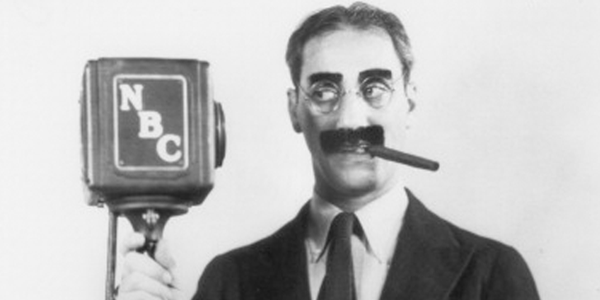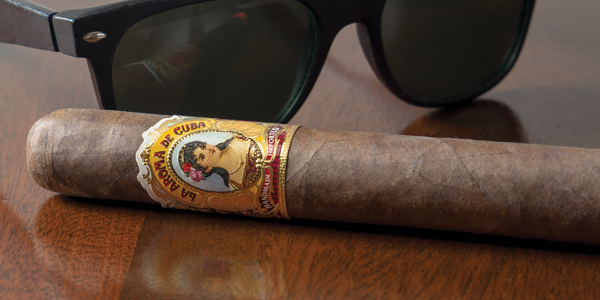The Origins of Cigar Sayings & Idioms
Cigars play a big role in our culture as well as in our relaxation. A number of our favorite icons are inseparable from their cigars, like Winston Churchill, Arnold Schwarzenegger, Mark Twain, Groucho Marx, Michael Jordan, George Burns, and more. Cigars have also made their way into our language. A handful of the most recognizable idioms and sayings in modern culture refer to cigars. But where did these classic statements originate? Let’s take a look based on some research uncovered in Cigar Aficionado by Fred R. Shapiro, author of the Yale Book of Quotations.
“Close, but no cigar!”
If we go back to the turn of the century, carnivals were a big source of entertainment with a myriad of games, rides, treats, and spectacles to take in. Often, the prize for winning a game was a cigar. One game in particular, called “Hi-Ball” or “Hi-Striker,” requires contestants to slam a large sledge hammer down on a spring-loaded lever which in turn sends a heavy weight or puck soaring up a pole or shaft to ring a bell at the top. The height of the pole can range anywhere from 4 to 20 feet.
In order to ring the bell and win, a great amount of force was required to slam the sledge hammer down. Early versions of the game, however, were frequently rigged so that the puck wouldn’t reach the top of the pole no matter how hard the lever was struck.
It was routine for the attendant to invite a contestant of smaller stature up to ring the bell, which he or she would do with ease in front of a crowd. The lever would then be adjusted, unbeknownst to the crowd, to require much more force to send the puck up. Subsequent contestants (primarily strong, able-bodied young men) would step up only to contend with a surge of embarrassment in front of onlookers who would be perplexed and entertained by his or her inability to ring the bell.
Rigged or not, the phrase “close but no cigar” was commonly shouted by the attendant to spur participants on to keep playing. The earliest documented use of the phrase can be found in the film Annie Oakley from 1935. The phrase is applied to a wide scope of near-miss scenarios today.
“Sometimes a cigar is just a cigar.”
“Sometimes a cigar is just a cigar.” is a tongue-in-cheek phrase attributed to the celebrated founder of psychoanalysis, Sigmund Freud. His fixation with underlying metaphor and phallic symbolism makes the citation readily believable. However, Freud did not actually utter the quote. Its first misappropriation appeared in 1954 by a pair of authors who recounted the need of Freud’s disciples to interpret his obsessive cigar smoking. Freud’s subsequent reaction to their attempts is summed up in the now famous quote, “Sometimes a cigar is just a cigar.” Further research, however, revealed the authors of Law and Con-temporary Problems, Robert V. Faragher and Friz F. Heimann, were mistaken in their sourcing. Freud did not actually say this.
Nonetheless, the quote lives in our collective understanding of Freud today. And, no one can dismiss his prolific love of cigars – to the point where he became critical and unaccepting of those around him who did not smoke. Many of his students took up cigar smoking to curry favor as a result.
“I love my cigar, too, but I take it out of my mouth once in a while.”
Another humorous but misplaced allocation of credit goes to Groucho Marx. In the 1950s, Groucho had a female contestant on his TV quiz show, “Your Bet Your Life.” The woman, a mother of 22 children, explained that her love of children and her love of her husband were the basis for couple’s having had so many offspring. In response, Groucho allegedly quipped, “I love my cigar, too, but I take it out of my mouth once in a while.”
A detailed review of footage from the episode revealed no evidence the quote was actually spoken. Additionally, Groucho himself went on to deny having said anything to the effect in an interview with Roger Ebert years later. Whether Groucho said it or not, it’s hard not to laugh at such a fitting sentiment.
“I never smoke more than one cigar at a time.”
In a sarcastic attempt to emphasize the moderation of his cigar smoking, literary giant Mark Twain announced his restraint during his 70th birthday dinner on December 5, 1905 at Delmonico’s restaurant in New York City with, “I have made it a rule to never smoke more than one cigar at a time.”
However, in a thorough search of newspaper databases, Fred Shapiro points out a reference on March 25, 1904 in the San Jose Evening News which recounts an even earlier printing in the Cincinnati Times-Star that read: “I suppose,’ said the physician, after he had sounded the new patient, ‘that you exercise judgment in the matter of smoking? You do not indulge to foolish excess in it?’ ‘No, indeed,’ replied the inveterate individual, ‘I never smoke more than one cigar at a time.”
Perhaps it’s possible two distinct individuals reflected exactly the same sentiment, one being Mark Twain. Or, he simply picked up his legendary quote from a previous printing and carried the message to the masses.






